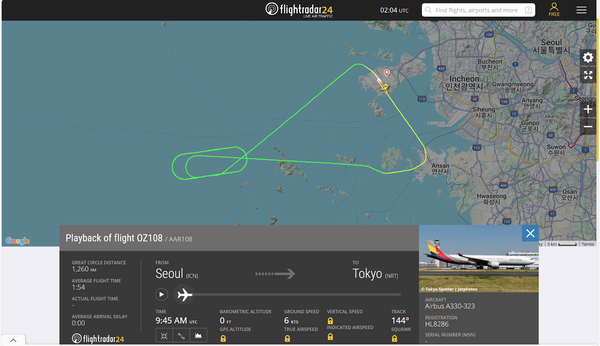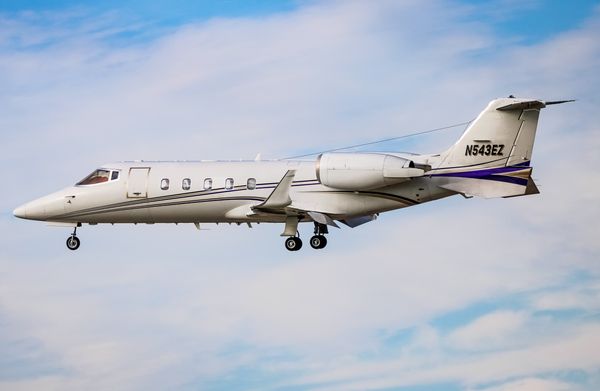Chaos ensued on a Thai AirAsia flight after a passenger's power bank exploded and caught fire, prompting the crew to extinguish it swiftly.

Power Bank Fire
Thai AirAsia's flight FD 3188 is a daily domestic service between Bangkok's Don Mueang International Airport (DMK) and Nakhon Si Thammarat (NST) in southern Thailand. On February 24, the flight departed Don Mueang on time for its regularly scheduled one-hour flight. The aircraft operating was an Airbus A320-200 registered HS-ABX with 186 passengers onboard.
About 30 minutes after the flight from Don Mueang took off, smoke emanated from row 15. It was soon discovered that this smoke was coming from a portable power bank that had suddenly ignited. The smoke caused the flight attendants to promptly grab one of the onboard fire extinguishers and put an end to the sudden fire.
Despite the chaos that ensued onboard, the crew extinguished the fire within two minutes. FD 3188 continued on its flight to Nakhon Si Thammarat and landed safely. The aircraft was not taken out of service and returned to Bangkok Don Mueang normally.
An initial investigation revealed burn marks on the seats. This is because once the power bank caught fire, it was stowed in the seatback pocket. It was later revealed that the power bank belonged to a family of seven or eight people traveling to Nakhon Si Thammarat for vacation.

Power Banks on Flights
Power banks are used as portable chargers for those unable to access a physical power outlet to charge their mobile devices. Most ultra-low-cost airlines do not offer in-seat power or USB onboard their aircraft. Hence, passengers tend to bring portable power banks onboard to ensure that their devices stay charged. This can be said for any passenger traveling on any airline.
Thai AirAsia warns passengers to check their spare batteries or power banks, ensuring they meet the required quality specifications. Airlines prohibit portable batteries or power banks from being stored in checked luggage. Aviation authorities such as the Transportation Safety Administration (TSA) in the U.S. also set the same rules.
In the unlikely event of such devices catching fire, no one would be able to tell and quickly extinguish it due to the fire occurring in the cargo hold. However, it is worth noting that aircraft cargo holds are very air-tight, limiting the available oxygen that could start a fire if something like a power bank suddenly catches fire.

But even though the cargo hold is secure, aviation regulators continue to stress the importance of storing power banks or lithium batteries in carry-on luggage. This is to prevent the risk of any fire in the cargo hold. This rule also ends up being for the passenger's benefit. Storing extra batteries or power banks in carry-on luggage is the best way to go for ease of access.
Therefore, if passengers happen to be flying aboard a low-cost airline on a longer flight and desperately need to charge their devices, the spare power bank is easy to access.
Comments (1)
 Andrew Hirst
Sadly some airlines still don't have lithium battery fire mitigation bags on board which enhance in-flight safety and save the need for costly diversions and emergency landings. World's best selling is AvSax which is on 17,000 aircraft operated by 100 airlines worldwide. More at www.avsax.com
Andrew Hirst
Sadly some airlines still don't have lithium battery fire mitigation bags on board which enhance in-flight safety and save the need for costly diversions and emergency landings. World's best selling is AvSax which is on 17,000 aircraft operated by 100 airlines worldwide. More at www.avsax.com
Add Your Comment
SHARE
TAGS
NEWS AirAsia Thai AirAsia Thailand Bangkok Emergency Incident Safety Airbus A320-200 Airbus A320RECENTLY PUBLISHED
 Tokyo-Bound Asiana Flight Experiences Engine Failure
An Asiana Airlines flight bound for Tokyo experienced an engine failure, prompting its return to Incheon International Airport.
NEWS
READ MORE »
Tokyo-Bound Asiana Flight Experiences Engine Failure
An Asiana Airlines flight bound for Tokyo experienced an engine failure, prompting its return to Incheon International Airport.
NEWS
READ MORE »
 Learjet Owned By Vince Neil Crashes Into Gulfstream Jet, 1 Fatality Confirmed
On February 10th, around 14:30 local time, a Learjet private jet aircraft crashed into another private jet after landing at Scottsdale Airport (SCF) in Arizona.
NEWS
READ MORE »
Learjet Owned By Vince Neil Crashes Into Gulfstream Jet, 1 Fatality Confirmed
On February 10th, around 14:30 local time, a Learjet private jet aircraft crashed into another private jet after landing at Scottsdale Airport (SCF) in Arizona.
NEWS
READ MORE »
 Seattle Plane Strike 2025: Japan Airlines and Delta Collision Raises Safety Concerns
Seattle-Tacoma International Airport saw a concerning incident on Wednesday morning when a Japan Airlines (JAL) plane clipped a parked Delta Air Lines jet while taxiing. Thankfully, no one was injured, but passengers described the collision as a frightening experience.
NEWS
READ MORE »
Seattle Plane Strike 2025: Japan Airlines and Delta Collision Raises Safety Concerns
Seattle-Tacoma International Airport saw a concerning incident on Wednesday morning when a Japan Airlines (JAL) plane clipped a parked Delta Air Lines jet while taxiing. Thankfully, no one was injured, but passengers described the collision as a frightening experience.
NEWS
READ MORE »



